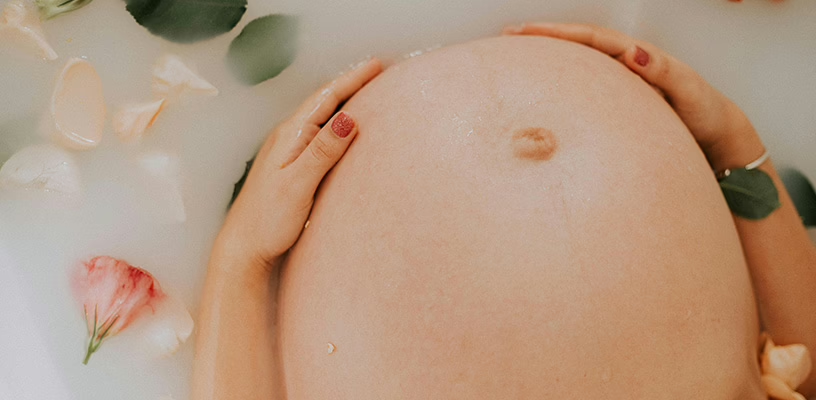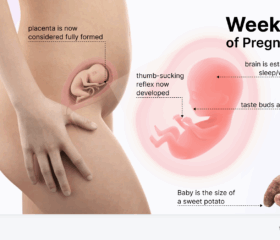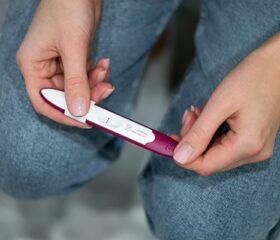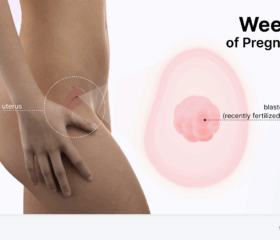How Your Belly Button Changes During Pregnancy (When It Pops)
Pregnancy shows you that your once-familiar body is full of surprises. One of the physical changes you’ll experience is the “popping” of your belly button.

Not all women welcome this pregnancy symptom, but it’s usually completely harmless. If you’ve ever wondered what exactly happens down there to make your belly button pop (or how to care for it once it does), read on.
Final thoughts
Not every mom-to-be relishes the thought of their belly button standing at attention, but try not to stress about it too much. Whether it’s welcome or unwelcome, this pregnancy symptom is small, harmless, and usually temporary.
Do your best to embrace the spectacle, and remember that your body is doing amazing things, both inside and out.
Article Sources
- Cleveland Clinic. "Why Your Belly Button Changes When You’re Pregnant" Retrieved April 8, 2025.
- The University of Texas Southwestern Medical Center. "5 weird pregnancy symptoms you might not know about" Retrieved April 8, 2025.
- American Pregnancy Association. "Hernia During Pregnancy" Retrieved April 8, 2025.
- StatPearls Publishing. "Umbilical Hernia" Retrieved April 8, 2025.
- American Osteopathic College of Dermatology. "Pruritic Urticarial Papules and Plaques of Pregnancy" Retrieved April 8, 2025.
- American Pregnancy Association. "Piercing and Pregnancy" Retrieved April 8, 2025.
- MedlinePlus. "Skin and hair changes during pregnancy" Retrieved April 8, 2025.
- Aesthetic Surgery Journal Open Forum. "Umbilicoplasty in Abdominoplasty: Modifications for Improved Aesthetic Results" Retrieved April 8, 2025.







